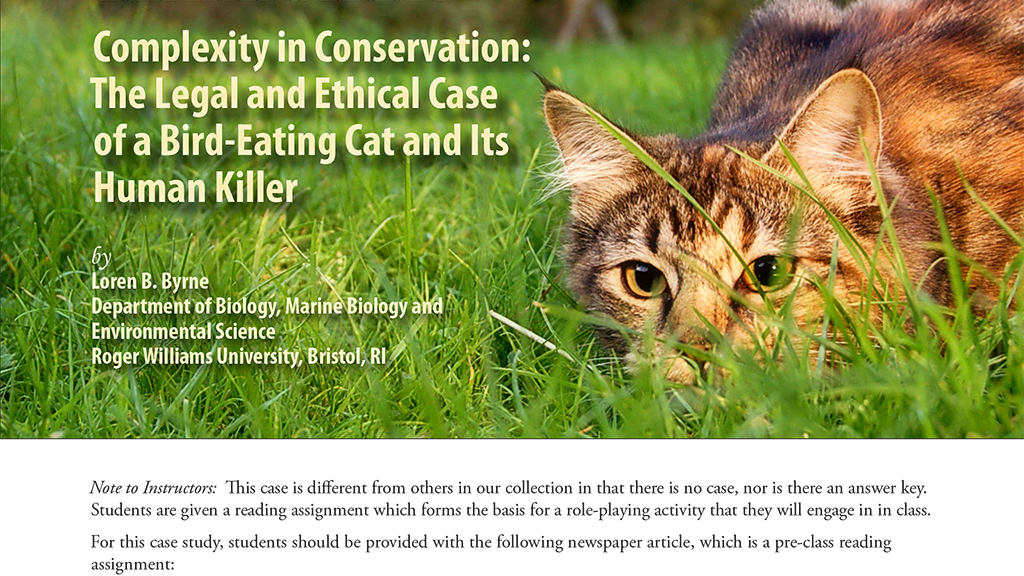Abstract
Conservation biology focuses on the scientific study and practice of preventing biodiversity loss. Many complex sociocultural factors affect the success of conservation. This case study presents the true story of a Texas man who killed a cat that was killing piping plovers, a type of endangered bird species, and was prosecuted for it. In Texas, it is a crime to kill an animal that "belongs to another," and there was evidence that another person was feeding the cat, which otherwise appeared to be feral. Students engage in a role-playing activity as jurors; they discuss the case and collectively decide whether the cat killer should be acquitted or convicted. This role-playing coupled with follow-up discussions help students examine and articulate their own views on a controversial environmental issue and gain a better understanding about the complex interdisciplinary nature of conservation science and practice. Developed for an advanced undergraduate course in conservation biology, the case could be adapted to courses across levels (introductory through advanced) and with various disciplinary foci (e.g., political science, ethics, anthropology).



